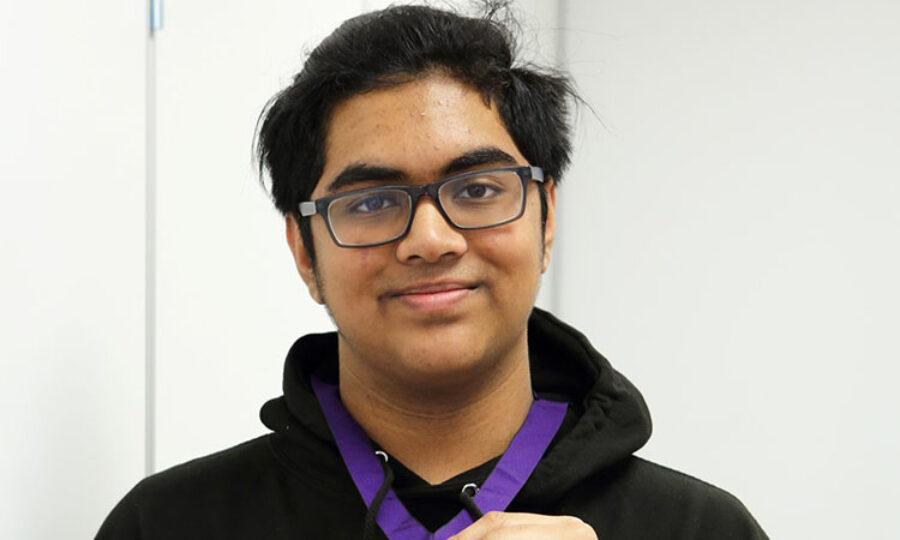Young and proud

Youth councillors Areeb and Myah talk to IslingtonLife about the issues facing young LGBTQ+ people in Islington and how we can work together to create a more inclusive borough for all
Have you always been passionate about advocating for LGBTQ+ issues?
Areeb: I will admit, before the Covid lockdown I hadn’t known what the LGBTQ movement was, as I was kept quite sheltered from everything. As I began branching out and speaking to people online, I slowly began to learn about the community and began to do my own research into it. I looked at the hate towards this community and it reminded me of what many of my own people, as an ethnic person, had to face. I became passionate to prevent this cycle of hatred and war from unfolding.
Myah: I’ve always wanted to fight for equality in general; my passion for advocating for LGBTQ+ issues developed over time due to seeing all the issues in society.
How can schools play a role in supporting young members of the LGBTQ+ community?
A: The environment of many schools, including my own secondary school, had quite closed off mindsets and students would not understand the reality of the impact of their behaviour. I think a change must happen so that students are educated effectively about issues from a young age, in a way that emphasises that members of the community are human, while not overly pushing forward the LGBTQ+ background of figures within history.
Schools could also work on creating a safe space where students can tell a teacher if they have been affected by bullying or hate crime without being seen, such as some kind of wellbeing email run by a teacher which is known to tackle safeguarding issues. It should be up to the student whether they want staff to deal with the attacking student, though, as it could possibly cause more serious consequences.
M: It can still be difficult for young LGBTQ+ people to come out in school due to fear of rejection, bullying, and lack of support. Schools could do better by implementing comprehensive anti-bullying policies, educating staff and students about LGBTQ+ issues, providing safe spaces and support groups, and actively promoting inclusivity.
Why is LGBTQ+ History Month so important?
A: It raises awareness of issues present within the world and additionally allows people to be able to be discovered. Many do not know figures like Alan Turing were gay, and that he and others were brutally punished for it.
M: Marking LGBTQ+ History Month is important to wider society because it raises awareness about the struggles and achievements of the LGBTQ+ community. Importantly, it also allows LGBTQ+ individuals to see themselves represented and acknowledged.
How do you think we can combat ignorance towards the LGBTQ+ community?
A: I feel by spreading a positive image and showing how anyone can identify as an LGBTQ+ individual, without looking a certain way or coming from a particular background.
M: Education and awareness are key. This can be done through implementing an LGBTQ+ inclusive curriculum, promoting diversity and inclusivity in media, and organising community events and workshops.
How do you feel that in your role as a youth councillor you have brought attention to LGBTQ+ issues?
A: We have speak to people of all backgrounds and listen to their opinions on many issues. We have tried to use our friends to spread good towards the community rather than hate.
M: As a youth councillor, while I have been getting to understand the Islington community more personally, I have seen how LGBTQ+ individuals are struggling with homophobia and this has allowed me to bring such issues up during meetings.
What advice would you give to future youth councillors when it comes to matters of social justice that they are passionate about?
A: Build a good relationship with adult councillors and older figures within Islington Council and share your thoughts with them. By building this connection, they may even invite you to select events where you have an even greater say.
M: By advocating for inclusive policies and initiatives within the Youth Council and local community, and collaborating with LGBTQ+ organizations, educators, and community leaders to provide resources and support.
My advice to future youth councillors is, stay informed and educated about the social justice issues you are passionate about. Utilise your platform as a youth councillor to raise awareness and drive meaningful change and don’t be afraid to take risks and challenge the status quo to push for progress. It’s also important to engage with the community and listen to the voices and experiences of those affected by the issues. Be persistent, resilient, and prepared to face opposition or criticism – and remember that change takes time and effort.
